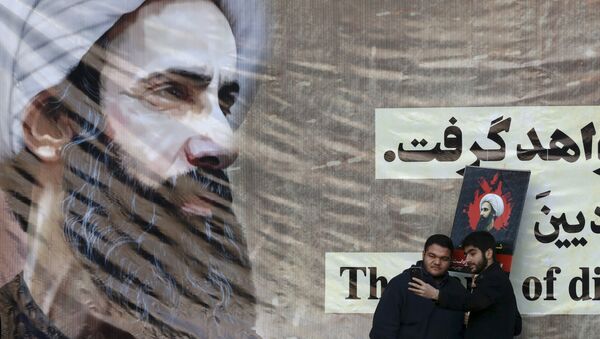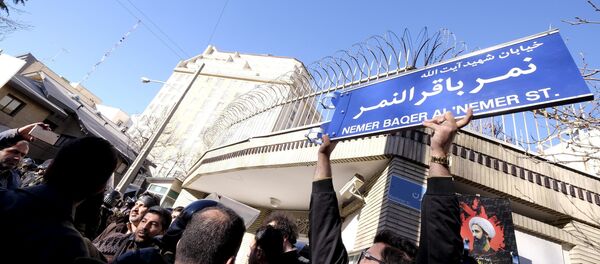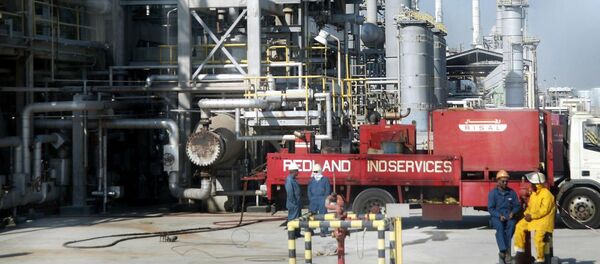Sheikh Nimr al-Nimr's beheading has shaken the Shiite population of the region, severing remaining ties between Saudi Arabia and Iran; to complicate matters further the execution took place amid the ongoing Syrian crisis, Germany-based American political analyst Phil Butler underscores.
"Iran is the main regional rival of Sunni-ruled Saudi Arabia, and has been since the fall of the Shah back in the 1970s. Iran's isolation since the revolution there has largely benefitted the house of Saud and those aligned with Saudi interests abroad, especially the United States and Britain. For the reader who is unfamiliar, Saudi Arabia is 90% Sunni Muslim and Iran is likewise 90% Shia Muslim, but the sectarian divide has been less acute than the political one for decades now. It is this most recent Sunni-Shia sore that has festered with the infestation of outside interests of late," Butler notes in his recent article for New Eastern Outlook.
Who benefits from aggravating further tensions in the region?
According to Butler, the best clue as to "who stands behind" this new Saudi-Iran crisis comes to us from US mainstream media sources. The analyst notes with a touch of irony that some of them are "the perfect barometer of what is NOT true in the world of international affairs these days."
He calls attention to the fact that the Obama administration is vocally "bemoaning" the fact that the sudden escalation of tensions between Riyadh and Tehran may deal a blow to the fight against Daesh in Syria and Iraq, as well as to the negotiations over the Syrian crisis, and efforts to bring stability to the Middle Eastern region as a whole.
Butler emphasizes that while turning a blind eye to Riyadh's abuse of human rights Western media sources have seemingly no scruples about depicting Iran as the "root of all evil."
"Iran, along with Russia, is the leading backer of Syrian President Bashar al-Assad, a member of a minority Shiite sect, and Riyadh views the civil war as part of Iran's fight for sectarian dominance," Pulitzer Prize-winning American journalist Karen DeYoung remarks in his article for Washington Post, as quoted by Butler.
"The story goes on to plant the seed of military support for Saudi Arabia should the situation escalate, which it is certain to with the help of the lame duck Obama," he points out.
Riyadh's actions are a part of the West's Middle Eastern strategy aimed at partitioning of Syria and re-drawing the map of the Middle East. Saudi Arabia is not upsetting Washington's applecart, as the mainstream media is reporting; instead it is playing directly into the hands of those who instigated the Syrian civil war.
Make no mistake, Butler stresses, it was Washington and London who contributed to the current Middle Eastern mess with the help of their Gulf allies such as Saudi Arabia.
"The summary of this story is fairly easy to parlay. Saudi Arabia just made a play for the neocons in Washington, the bankers in London… What we are witnessing is a last ditch effort to counter Vladimir Putin's play in the region, and to either win a new Syria partitioning, or else burn the deserts in total," the US analyst emphasizes.



